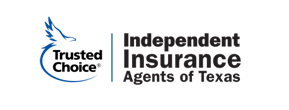HOMEOWNER'S INSURANCE
Homeowners insurance, also known as home insurance, is a type of property insurance that provides financial protection to homeowners against various risks and perils that could affect their residential property and belongings. This insurance policy typically covers both the physical structure of the home and the personal belongings inside it. Homeowners insurance can offer coverage for a range of situations, such as damage from natural disasters, theft, vandalism, liability claims, and more.
Key components of homeowners insurance include:
- Dwelling Coverage: This aspect of the policy provides protection for the physical structure of the home itself, including the walls, roof, floors, and built-in appliances. If the home is damaged by covered perils like fire, wind, hail, or lightning, the insurance can help cover the costs of repairs or rebuilding.
- Personal Property Coverage: This part of the policy extends coverage to personal belongings within the home, such as furniture, electronics, clothing, and other possessions. If these items are damaged, destroyed, or stolen due to covered events, the insurance can help reimburse the homeowner for their value.
- Liability Coverage: Liability coverage helps protect homeowners from financial losses if they are found legally responsible for injuries or property damage sustained by others while on their property. This can include situations like slip-and-fall accidents or pet-related incidents.
- Additional Living Expenses (ALE) Coverage: If a covered event makes the home uninhabitable, ALE coverage can assist with the costs of temporary housing, meals, and other living expenses while the home is being repaired or rebuilt.
- Medical Payments Coverage: This part of the policy can help cover medical expenses for guests or visitors who are injured on the homeowner's property, regardless of who is at fault.
- Other Structures Coverage: This covers structures on the property that are not attached to the main dwelling, such as detached garages, sheds, or fences.
- Natural Disaster Coverage: Depending on the location and the policy, homeowners insurance may include coverage for specific natural disasters like earthquakes, floods, hurricanes, and wildfires. However, some disasters might require separate or additional insurance policies.
It's important to note that homeowners insurance policies have limitations and exclusions, so homeowners should carefully review their policy to understand what is covered and what is not. Additionally, coverage amounts and premiums can vary based on factors such as the location of the property, the home's value, the homeowner's claims history, and the chosen coverage options.
Homeowners insurance is generally required by mortgage lenders to protect their investment in the property. Even for homeowners who have paid off their mortgages, having this type of insurance can provide valuable peace of mind in the event of unexpected events or accidents.
Renter's Insurance
Renters insurance, also known as tenant insurance or apartment insurance, is a type of insurance policy designed to provide financial protection to individuals who are renting a residential property, such as an apartment, condo, or house. Renters insurance offers coverage for the tenant's personal belongings and provides liability protection in case of accidents or damages that occur within the rented property.
Key components of renters insurance include:
-
Personal Property Coverage: This aspect of the policy offers protection for the tenant's personal belongings, such as furniture, electronics, clothing, and other possessions. If these items are damaged or stolen due to covered perils like fire, theft, vandalism, or certain natural disasters, renters insurance can help reimburse the tenant for their value.
-
Liability Coverage: Similar to homeowners insurance, renters insurance includes liability coverage. This protection helps cover the tenant's legal and financial responsibility if they are found liable for injuries to others or property damage that occurs within their rented space. For instance, if a guest is injured while visiting the tenant's apartment, liability coverage can assist in covering the resulting medical expenses and potential legal costs.
-
Additional Living Expenses (ALE) Coverage: If the rented property becomes temporarily uninhabitable due to a covered event, ALE coverage can assist with the costs of temporary housing, meals, and other living expenses while repairs are being made.
-
Medical Payments Coverage: Like in homeowners insurance, renters insurance includes coverage for medical expenses incurred by guests or visitors who are injured within the rented property, regardless of fault.
Renters insurance does not typically cover the physical structure of the rental property itself (that's the landlord's responsibility), but it focuses on protecting the tenant's personal belongings and providing liability coverage.
Renters insurance is not required by law, but many landlords and property management companies may require tenants to have it as a condition of the lease. Even if it's not mandatory, renters insurance is highly recommended because it can provide valuable protection at a relatively affordable cost. It's important for renters to carefully review their policy and understand its coverage limits and exclusions.
Similar to other insurance policies, factors such as the location of the rented property, the amount of coverage chosen, and the tenant's personal circumstances can influence the cost of renters insurance. Overall, renters insurance helps tenants have financial peace of mind and protects their belongings in the event of unexpected accidents or damages.







